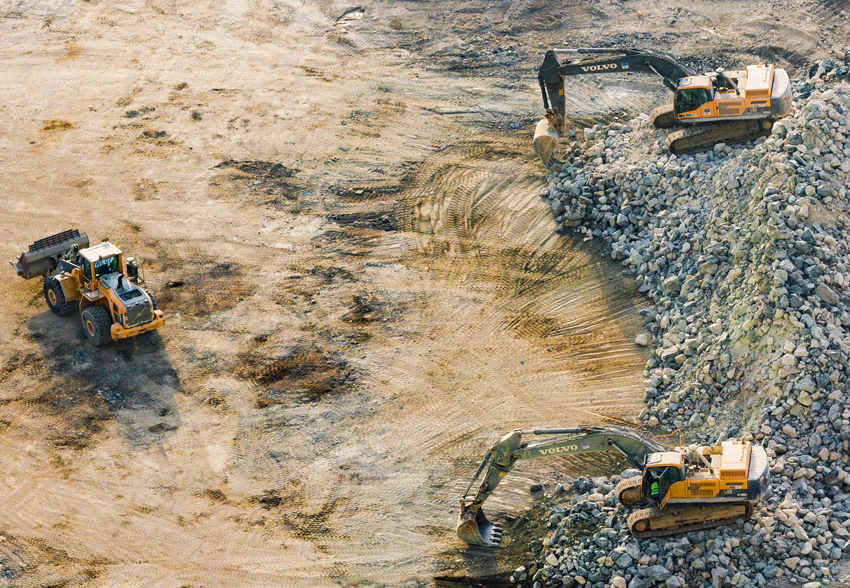Impact
Rock Paper, Scissors: Why stone paper is currently the most sustainable label on the market
Rock paper, also known as stone paper or mineral paper has been around for a long time. Yet only in recent years did the technology evolve to use it as versatile product labels. At SWOX we introduced limestone paper labels for all our new products this year. While stone paper is one piece in an ongoing work-in-progress towards more sustainability of our products, we are passionate about discussing the pros and cons and educating our community on how to recycle our products after being done using them.
WHY WE LOVE STONE PAPER!
While researching for a true alternative to regular label paper for our products, we stumbled across locally made rock paper. Etiket Schiller is a German label maker based in a small town close to the City of Stuttgart. Since over 80 years, the family owned and operated company specializes in product labels and shares the SWOX value of continuously improving products in terms of their environmental impact. Thus Etiket Schiller became the label supplier for all our new products, including the SWOX daily skincare, our lotions and after sun skincare.
One of the obvious reasons why we love stone paper, is the durability when it comes in contact with water – which our products often do. Limestone paper has a much better resistance to water and tearing than regular paper. On top of this advantage, there is a much more important reason why we prefer stone paper labels: The overall small environmental impact.
HOW IS STONE PAPER MADe?
The life cycle of regular paper has a significantly negative environmental impact. At first the trees used in paper production have to be cut. Over one third of all trees being cut down worldwide are used to make paper from wood pulp. In addition, paper production uses a lot of fresh water – about 10 liters for 1 page of a letter/A4 sheet. During the production process the water is not only used but also contaminated with chemicals, which are harmful for the environment (read about what else you can do to save water and keep our drinking water clean). Unfortunately these are just two of many ecological problems the production and recycling of regular paper causes.
On the other hand, the raw material of limestone paper is chalk or in other words calcium carbonate. It’s a waste product from mining. The mineral paper production process uses no trees, no water and no chemicals. It requires significantly less energy in manufacturing and is endlessly recyclable. Additionally stone paper does not generate any toxic emissions during incineration and degrades under UV light.

WHAT MAKES THE DIFFERENCE, STONE PAPER?
However, in order to bond the chalk particles into rock paper, the production uses recycled high-density polyethylene (HDPE). Reading about a polyethylene in this context rightfully makes you a bit skeptical at first. Rest assured, we felt the same way. Sustainability and polyethylene – two words that don’t always go together. In this case though, it does, especially when recycled correctly and compared to the currently available alternatives.
The average stone paper uses about twenty percent polyethylene. Because the HDPE used to bond the calcium carbonate, the production process is completely waterless. The amount of water saved entirely and not being contaminated compared to the manufacturing of regular or recycled wood pulp paper is tremendous.
Finally, the big advantage of stone paper is the number of life cycles compared to regular paper. While regular paper can be recycled about seven times before the fibers become unusable for paper manufacturing, high-density polyethylene can be used for an estimate of a couple of hundred years. Even for the first usage, manufacturers like Etiket Schiller for SWOX, use already recycled polyethylene.
QUO VADIS ROCK PAPER?
Knowing now that stone paper contains a type of polyethylene, it can’t be recycled as regular paper. Thus it’s important to recycle the SWOX labels into your yellow bag or trash bin (Germany) or wherever you recycle your PE-products (Learn about plastic pollution and recycling in Germany). While it can stay on all our recycled plastic bottles when you are done using them, we urge you to take it off from the glass containers of our SWOX Face Balm, Cell Boost Aloe Gel+, Hydro Repair Cream and Hand Purifier.

Photo: Etikete Schiller
Is it the most reasonable and sustainable label for cosmetics at the moment? YES! Is it perfect? NO! But we believe that making tiny leaps into a more environment friendly future is better than standing still.
STONE PAPER FUN FACT
Paper made from stone has an especially soft texture and does not cause paper cuts!


